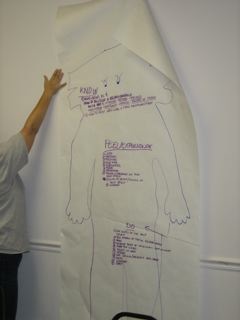Where do we begin?
Purpose
A good study to work through as a Discipleship/Ministries Vision team is found in the prayers of Paul. In them he gives his hopes and dreams for the churches.
Our purpose is to raise disciples for Jesus Christ
Relationships
Accountable to:
- Values and Vision
- Leadership
- Other Quadrants
- Discipleship
- Training
Each church should define what discipleship looks like. They are encouraged to look at models such as Willow Creek, Saddleback, and We Build People, but in the end, each church needs to own the definition for themselves and not short-cut the process by adopting someone else’s definition.
The Complexities of Q3
Discipleship involves looking at many types of people that enter into your church. Willow Creed identifies these as:
- Exploring Christ
- Growing in Christ
- Close to Christ
- Christ Centered
The Reveal Study also identified four catalysts for change and discipleship is the process of helping people in each of these areas. They include:
- Spiritual Beliefs
- Spiritual Practices
- Activities with Others
- Service
- Systematically
- Theologically
- Holistically
- Relationally
- Missionally
Present Realities
The first step in vision team meetings is defining realities. This involves a variety of questions that need to be answered. Some of these are:
- Where is God currently working in the area of discipleship?
- What is your current pathway?
- What is the churches discipleship temperature?
- What are your primary ways (methodology) of helping people grow in Christ?
- What are your strengths?
- What traditions are you stuck in that are hindering your discipleship growth?
- Who are being discipled in the church?
- What are we doing right?
- What are we doing wrong?
- What are we missing?
- What do we need to keep?
- What do we need to give up?
- What is one thing that will give us lift in the next 60-90 days?
- What do we need to change immediately?
- Where are we stalled in our spiritual life?
- What do you expect of people (know, feel, do)?
- What attitudes need to change?
- What knowledge do you need to acquire?
- What skills are necessary?
- Who will go with us?
- How do you currently guide people in church?
- How do you currently help the new believer?
Vision and Dreams
Your vision team needs to define what God’s dream is for your church. Dr. Lee encourages you to ask the question, “If God gave you 25 million dollars and you knew Jesus was returning in five years, what would he be pleased with?” and “What would he not be pleased with?”
In regards to raising disciples, what are the dreams God would be pleased with?
Missional Goals
- Determine next step
- Identify present realities
- Decide on strategic methodologies
- Develop, define, evaluate fulfillment of missional goals
Suggested Pathway
Remember, these are only suggestions to get you started.
Meeting One: Purpose and Rules of Engagement
- Set rules of engagement. Reading “Five Dysfunctions of a Team” can get you started.
- State up front that you want everyone to participate. Remember that the people who have been in the church the longest need to encourage the newer people to participate. We need their voice.
- Define your purpose for meeting together
- Have everyone introduce themselves and ask about their salvation and how they were discipled.
- Find some discipleship states to create the sense of urgency. George Barna can help you here.
- Define the next year and where you want to go.
- Discuss the results of the Church Life Assessments and ask people to discuss why the rated the questions the way they did.
Meeting Two: Work with your team to define what you want a disciple to know, feel and do.
- through scripture
- through prayer
- through small group discussion
- through exercises
- through reading
Meeting Three: Discover present and future values (what guides the church now and what will guide the future)
An understanding of what values are is critical for this discussion.
- through assessments
- through pastoral interviews
- through reading
Meeting Four: Define current realities
- review assessment questions
- interviews
- discussion
- observation
- review church calendar
- list current discipleship offerings
- What obstacles keep this church from discipleling more people?
Meeting Five: Team building
- do an activity together
- hold a follow-up event
Meeting Six: Evaluate
What are some of the things you have accomplished so far?
- interviews
- observations (classes, small groups, programs)
- critique current systems
- critique environments
Meeting Seven: Review Current Models
- Willow Creek – Reveal
- Saddle Back
- We Grow People
Meeting Eight: Set Missional Goals
- think immediate wins
- think long term – transformation
- think strategically
- set priorities
- think SMART (specific, measurable, attainable, relevant, time specific)
Meetings Nine, Ten, Eleven:
It’s all up to you. Let me know what you did and what was successful.
Resources:
Will Hawkins, Reveal
Will Hawkins, Follow Me
Bill Hull, Choose the Life
Bob Roberts, The Multiplying Church
Thom Rainer, Simple Church
Bonhoeffer, The Cost of Discipleship
Tim Enloe, Want More (self published www.enloeministries.org)
David Kinnaman, UnChristian
David Kinnaman, “Attendees to Disciples”, Ministries Today, http://www.ministrytodaymag.com/display.php?id=14015
Christianity Today 2008, “Building a Culture of Discipleship” www.BuildingChurchLeaders.com>

